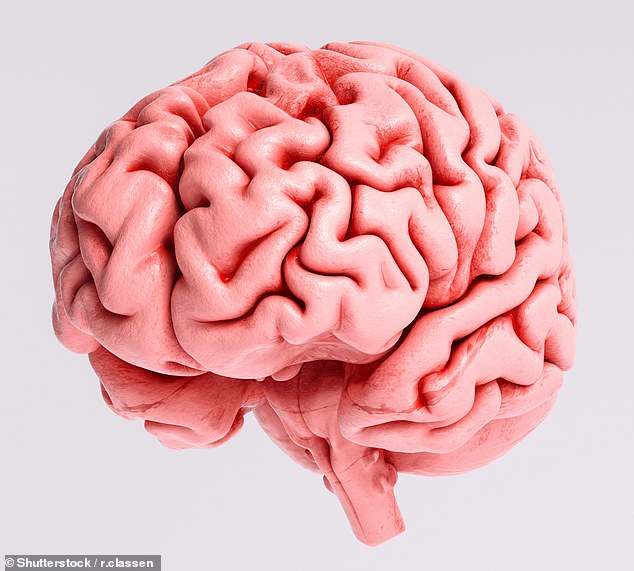Eating fatty foods such as pastries can make stress worse by slowing down blood flow and oxygen to the brain, study finds
Comfort eating fatty foods may worsen stress, a study suggests.
Researchers found that eating fatty foods during stressful periods can hinder the body's recovery from the effects of stress.
Consuming foods high in fat before a mentally stressful episode can reduce brain oxygenation and cause poorer vascular function in adults.
First author Rosalind Baynham, from the University of Birmingham, said: 'We took a group of young, healthy adults and gave them two butter croissants for breakfast.
'We then asked them to do mental arithmetic, increasing the speed for eight minutes, to warn them if they got a wrong answer.
Consuming foods high in fat before a mentally stressful episode can reduce brain oxygenation and cause poorer vascular function in adults (Stock Image)

Researchers found that eating fatty foods during stressful periods can hinder the body's recovery from the effects of stress (Stock Image)
'They could also see themselves on a screen while doing the exercise. The experiment was designed to simulate the daily stresses we might face at work or at home.
'When we become stressed, several things happen in the body: our heart rate and blood pressure increase, our blood vessels dilate and blood flow to the brain increases.
'We also know that the elasticity of our blood vessels – a measure of vascular function – decreases as a result of mental stress.'
PhD candidate Ms Baynham continued: 'We found that consuming fatty foods under mental stress reduced vascular function by 1.74 percent.
'Previous studies have shown that a one percent reduction in vascular function leads to a 13 percent increase in the risk of cardiovascular disease.
'Importantly, we show that this deterioration in vascular function lasted even longer after our participants had eaten the croissants.'
The team found that fat consumption had a negative effect on mood, both during and after the stress episode.
Professor Jet Veldhuijzen van Zanten said: 'We looked at healthy 18-30 year olds for this study and it is astonishing to see such a significant difference in the way their bodies recover from stress when they eat fatty foods.
'For people who already have an increased risk of cardiovascular disease, the consequences can be even more serious.
'We all deal with stress all the time, but especially for those of us who have high-stress jobs and are at risk of cardiovascular disease, these findings should be taken seriously.
'This research can help us make decisions that reduce risks instead of increasing them.'
The research, published in the journal Frontiers in Nutrition and Nutrients, also showed that consuming healthier foods, especially those rich in polyphenols, such as cocoa, berries, grapes, apples and other fruits and vegetables, could reduce this worsening of the vascular function can be completely resolved. prevented.
Dr. Catarina Rendeiro said: 'The impact of these foods during stressful periods cannot be underestimated.
'For example, reduced brain oxygenation can negatively impact mood and mental health, making people even more stressed.
'On the other hand, it can affect cognitive function and people's ability to complete the precise task they are focusing on, such as a job interview, an exam or a work meeting.
'This is something we would like to do more research into in the future.
'Our studies show that food choices around stressful episodes can exacerbate or protect against the effects of stress on our cardiovascular system.
'The good news is that this allows us to do something about this situation.

Reduced brain oxygenation can potentially impact mood and mental health, making people even more stressed (Stock Image)
'We know that when people are stressed they tend to gravitate towards foods with a higher fat content, either because it is the most convenient option when time is scarce or as a treat to cope with the stress.
'But by doing this they worsen their physical and psychological response to stress.
'By choosing low-fat foods, they can position themselves to deal with stress more effectively.'
Miss Baynham concluded: 'The world is an incredibly stressful place at the moment, and even without external factors such as war or a cost of living crisis, stress is something we all have to deal with.
“So the next time you're in a big meeting or taking part in a job interview, maybe try to resist the free cookies and go for some berries instead.”
'You may feel more relaxed and be able to handle stress a little better.'
